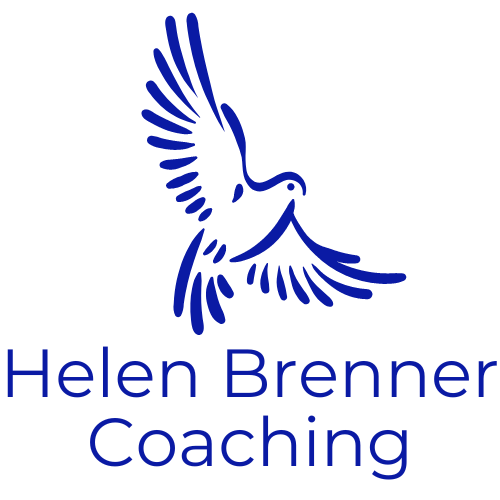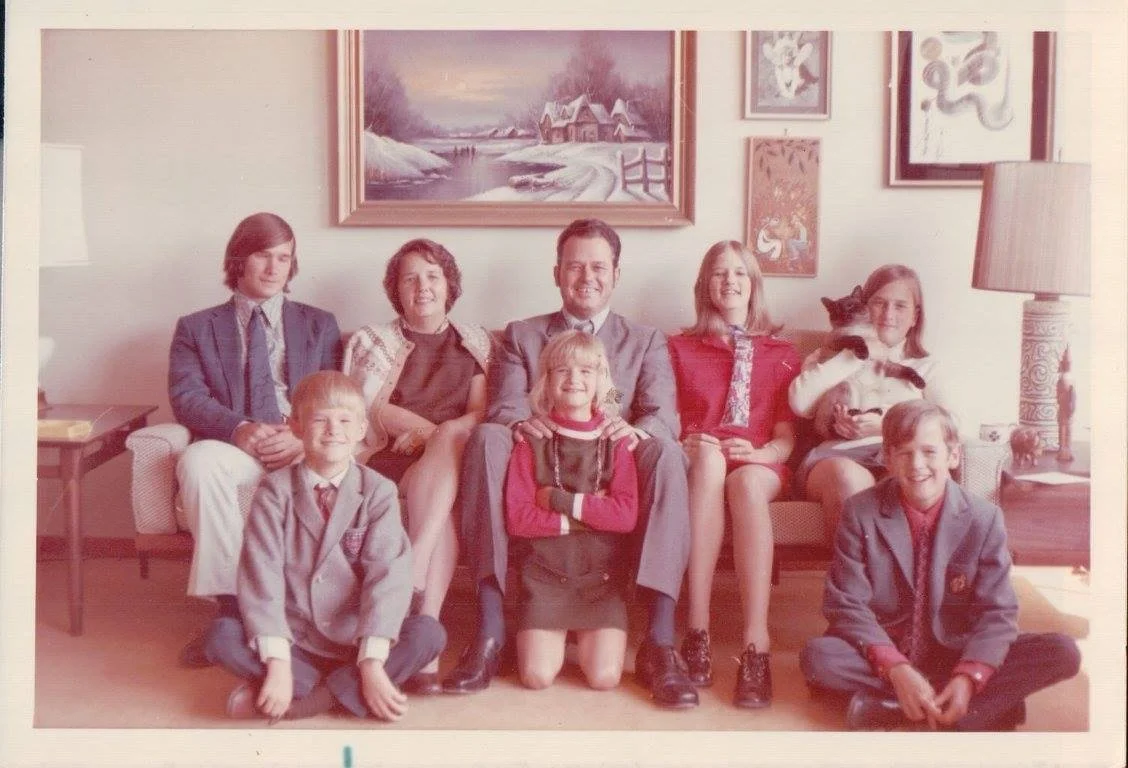I’m Raising People Not Pets
Photo of Helen’s family circa 1970
There’s something my mother used to say that I didn’t fully appreciate until years into parenting my own adult children:
“I’m raising people, not pets.”
It sounds funny, but her meaning was clear:
People are meant to become independent, self-sufficient. Pets, on the other hand, need you their entire lives.
And as a mom of six, she knew—if you do the job right, your kids eventually won’t need you in the same way.
Because when they’re little, you do handle everything—meals, safety, choices, even emotions. But as they grow into adults, the job changes… and no one really tells you how to change with it.
Many of us don’t even realize we’re still trying to parent in old ways—ways that once made perfect sense, but no longer fit the season we’re in.
Letting go of what I think they need
My kids are in their late 20s and early 30s now. And it’s taken real, intentional effort to become the kind of mother they need now—not the one I was when they were small.
I had to train myself to pause before jumping in. To resist the urge to offer solutions or ask one too many questions. To quiet the part of me that says, “But I just want to help.”
That shift—away from over-giving and toward trusting—was uncomfortable at first. Especially because for years, I thought my role was to anticipate and ease every difficulty.
But what I thought they needed and what they actually needed weren’t the same anymore.
Many parents find themselves here at some point—standing at the edge of that invisible line between helping and hovering, wanting so badly to do right, but unsure what “right” looks like when the kids aren’t kids anymore.
My mother saw something in me I didn’t
For years, I misunderstood how my mother related to me as an adult. With six children, she had to spread herself thin, and she often said:
“If you don’t hear from me, it means you’re doing good.”
I knew she meant it. She was focused on the ones who needed her most in that moment. And in her mind, not checking in constantly was a vote of confidence.
She even applied that same idea to hospitals:
“If people aren’t constantly in and out of your room, it means you’re doing okay. The more people hovering, the worse shape you're probably in.”
That’s how she saw motherhood, too. If you were getting by on your own, it meant things were working.
But at the time, it didn’t feel that way.
I took her distance personally. I thought maybe I didn’t matter as much. That she just wasn’t there for me in the way I needed.
I can still name moments where I wished she had been— like when I had surgery to remove cancer while pregnant with my first child. I wanted her there. I needed her—or at least I thought I did. And the truth is, that absence really hurt.
But thirty years later, I can see it differently.
My mom was a nurse. She knew I was in good hands at a top-tier cancer center. She trusted the care I was receiving, and in her own way, she had already passed me on to the next level of support.
Not because she didn’t care— but because she believed I was going to be okay.
That shift in perspective took time. And letting go of the pain didn’t mean it wasn’t painful back then. It simply meant I could now see that there was no malice. Just a different way of showing up.
Today, I try to do it differently.
I check in. I ask what my kids need. I explain my limits when I have them. And I try to stay present in ways that make sense for who they are— not who I was taught to be.
Pulling back can be loving. But so can making sure they know we’re still paying attention.
Over-caring isn’t a requirement for love
There’s this unspoken rule—especially for mothers— that if we’re not worrying, hovering, or checking in constantly, we must not care enough.
But that constant caring? It can take a real toll.
We lose sleep. We lose focus. We stop prioritizing our own bodies, our own thoughts, our own lives.
We carry emotional weight that was never meant to be ours.
And in doing that, we can unintentionally interfere with the very growth we wanted for them.
So many of us learned that love looks like staying ready for the worst— always anticipating the fall.
We weren’t taught how to love in a way that trusts, releases, and still stays connected.
Letting go isn’t abandonment. It’s guidance without control. It’s love without intrusion.
And sometimes, it’s the most respectful kind of love we can offer.
Loving them without hovering
Letting go doesn’t mean I love my kids less. It means I believe in them. It means I trust the people I raised.
I’m not failing them by stepping back. I’m honoring who they’ve become.
Because I didn’t raise them to need me forever. I raised them to live fully.
And I’m allowed to live fully, too.
If you’ve been walking that same edge—wondering when to hold on and when to release— just know: there’s no single right moment, no perfect formula.
But somewhere between presence and permission, there’s space for both you and them to grow.
You’re not letting go of love. You’re letting go of the weight that was never meant to be carried forever.
And you’re allowed to leave it behind.
✨ Ready to step into this next version of you— the one who trusts, releases, and still stays connected?
👉 Click the button below and let’s talk strategy
You don’t have to untangle it all alone.
Or stay connected — join my newsletter for brain-shifting insights, practical tips, and real talk that actually helps.




